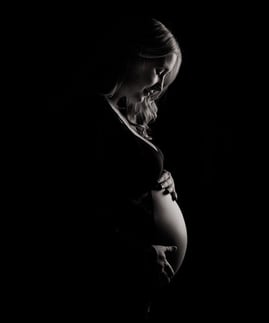A study by the World Health Organisation found that worldwide, about 10% of pregnant women and 13% of women who have just given birth experience a mental disorder.
Pregnancy impacts both your physical and mental health in large-scale and often unexpected ways, and it is just as important to take care of your mental health as your physical health. While some of the negative emotional side effects of pregnancy can be mitigated by simple yet effective self-care activities such as cooking healthier meals, light cleaning, and walking, the relationship between mental health and pregnancy is more complex, and it deserves closer examination during the planning stages of a pregnancy. In this way, mothers can know what to expect regarding mental health before experiencing any symptoms.
Pregnancy And Mental Wellbeing
According to PANDA (Perinatal Anxiety and Depression Australia), more than one in seven new mums experience postnatal depression. Many women believe that one of the greatest challenges of managing their wellbeing during and after pregnancy is determining what is “normal” and what is not. Moreover, determining if medications are safe and appropriate to treat mental and physical ailments during and after pregnancy can complicate matters. While there are some common worries and symptoms that come with being a new parent, if these begin to hinder your ability to function, you may be experiencing postnatal anxiety or depression and should seek professional help.
Postnatal anxiety and depression can be mild, moderate, or severe, and symptoms can begin either immediately after giving birth or within the months during the subsequent year. Some of the symptoms include panic attacks, persistent worry, mood swings, feeling sad or hopeless for no particular reason, lacking energy, withdrawing from friends and family, finding it difficult to focus, being easily annoyed, sleeping too much or too little, and having thoughts of harming yourself or others. As in the case of postnatal depression, these symptoms may also manifest themselves before a mother gives birth in the case of antenatal depression.
Mental Health Issues During Pregnancy Are Not Your Fault
Maternal depression and anxiety are not one-size-fits-all conditions. It’s important to know that you are not alone, and perinatal mood conditions are the result of a combination of factors, none of which is the fault of the mother. While it can be difficult to know how and when to reach out for professional help, it is important for mothers to do so as early as possible if they are experiencing any of the symptoms of depression or other mood disorders. Treatment for perinatal health issues may include prescription medication, talk therapy, or alternative approaches such as yoga and meditation.
The reality is that mental health issues are the most common complication of giving birth. Many women may feel embarrassed to seek help due to the cultural belief that women should be joyful after having a child; however, it is important to understand that it’s common to have these symptoms and often necessary to seek professional help.
Treatment for these mood disorders is very effective, and you can take the first step by calling one of many organisations that provide emotional support during pregnancy and parenting, including PANDA, beyondblue, and Pregnancy, Birth, and Baby. All of the organisations offer the non-judgemental support that all mothers need during this simultaneously joyful and overwhelming time in their lives.
This article was kindly written and contributed by Cassie Steele.
v\:* {behavior:url(#default#VML);}
o\:* {behavior:url(#default#VML);}
w\:* {behavior:url(#default#VML);}
.shape {behavior:url(#default#VML);}